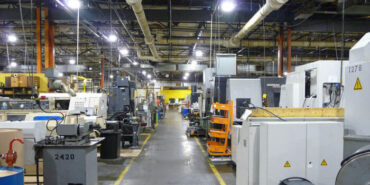
Insurance Liability Claims Spike as Accident Risks Rise in Rush to Restarting Suspended Business Industry Operations
A post-pandemic trend has emerged within the insurance industry as businesses rush to reopen or to return to pre-pandemic production. Start-up actions by business owners looking to recoup lost revenues may be leading to increases in workplace accidents and large property, casualty, and environmental liabilities. A report, “New emerging risk insights” by Swiss Re reports on dangers lurking in mothballed facilities due to missed inspections and delayed maintenance, increasing the risk of accidents as operations resume sometimes on speed driven tracks at oil refineries, chemical plants, mines, power plants, manufacturing facilities and through-out general industries. During operations re-openings, restarts, or expansions, employers and owners can lessen if not avoid accidents by planning and taking time to cover preventative measures and conducting physical inspections of the facility or operation including electrical, HVAC and fire protection systems and preparing, possibly re-training, employees for a safe return to the workplace.
The Centers for Disease Control and Prevention (CDC) “Guidance for Reopening Buildings After Prolonged Shutdown or Reduced Operation” recommends checking for hazards prior to restoring business activities. Hazards recognized include mold, Legionella, and lead and copper contamination from excess moisture and stagnant water systems. RHP Risk Management, in its authored white papers, “When Water Use Slows, Legionella Grows” and “Lead Accumulation in Stagnant Water During COVID-19“, recognized early on in the COVID-19 shut down that an unoccupied building or facility’s water system laying stagnant presents ideal conditions for the growth of opportunistic bacteria such as legionella and offers opportunities for water channeled through lead piping to accrue harmful levels of lead. In advance of re-opening, RHP experts recommend preventative measures such as flushing, sampling, and shocking systems and a thorough review of current or developed water management program (WMP) to prevent contaminates such as mold, Legionella, and lead and copper.
Owners and operators of businesses and facilities should have their safety procedures professionally audited for updates and new requirements. Emerging risks and trends arising from developments in human-machine interaction and connected infrastructures could cause a misstep in moving forward. Preventative measures should be considered that may further reduce the risk of accidents, such as fires, explosions, spills or toxic releases, by training new employees and/or re-training returning employees on updated and best practices on safety procedures and policies putting you and your business in the best position for a successful return. RHP Risk Management can inspect, audit, and evaluate your facility, building and current procedures and training programs and provide a gap analysis with required updates and recommendations on a healthy and safe workplace. Beyond RHP recommendations, an owner, operator, employer may want to look at measures outlined in the National Institute for Occupational Safety & Health (NIOSH) “hierarchy of controls”.
By following best practice guidance from reputable sources such as the CDC, NIOSH and the American Society of Heating, Refrigerating, and Air-Conditioning Engineers (ASHRAE), RHP Risk Management’s group of Certified Industrial Hygienists and occupational safety and health specialists work with business owners, facility managers, and employers to return to healthy workplaces for employees. Through cutting edge technology RHP can quantitively assess ventilation and filtration controls added to handle concerns of transmission and clean air in your workplace. RHP evaluates your HVAC system performance using liquid aerosol-based DNA-tagged tracers to safely mimic the mobility of infectious aerosols (e.g., SARS-CoV-2) in order to identify hotspots and control needs within your facility or building. RHP Risk Management partners with our clients in managing, mitigating, and controlling health risks in their workplaces through the anticipation, recognition, evaluation, and control of environmental and occupational hazards.
Contact RHP Risk Management for an initial consultation or call (773) 867-6010.
